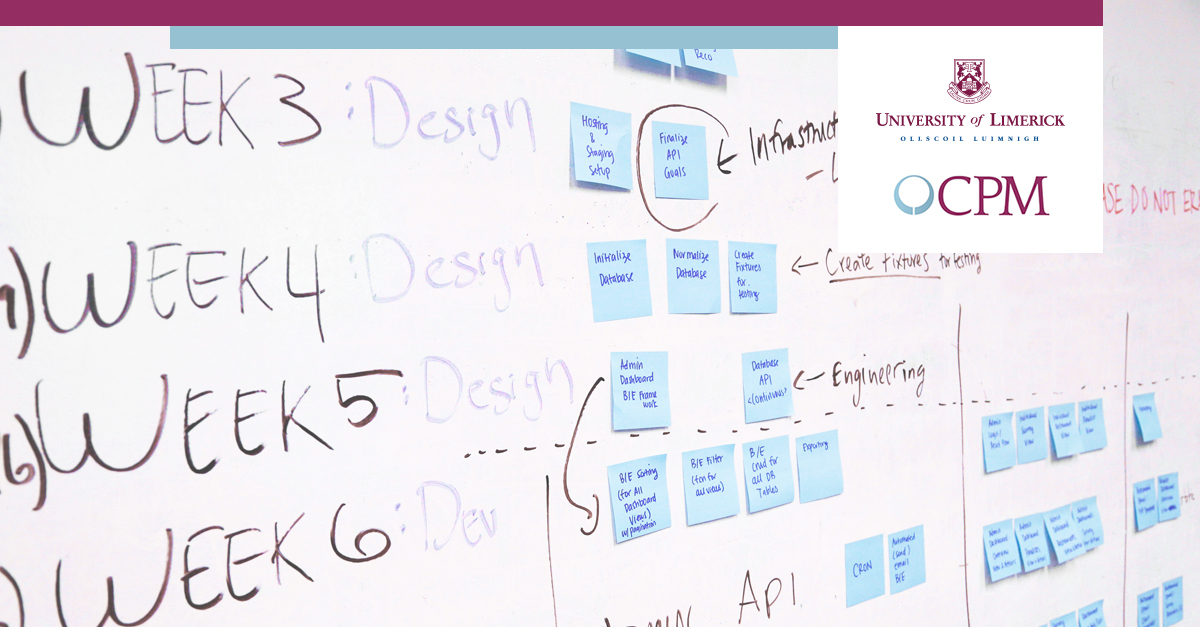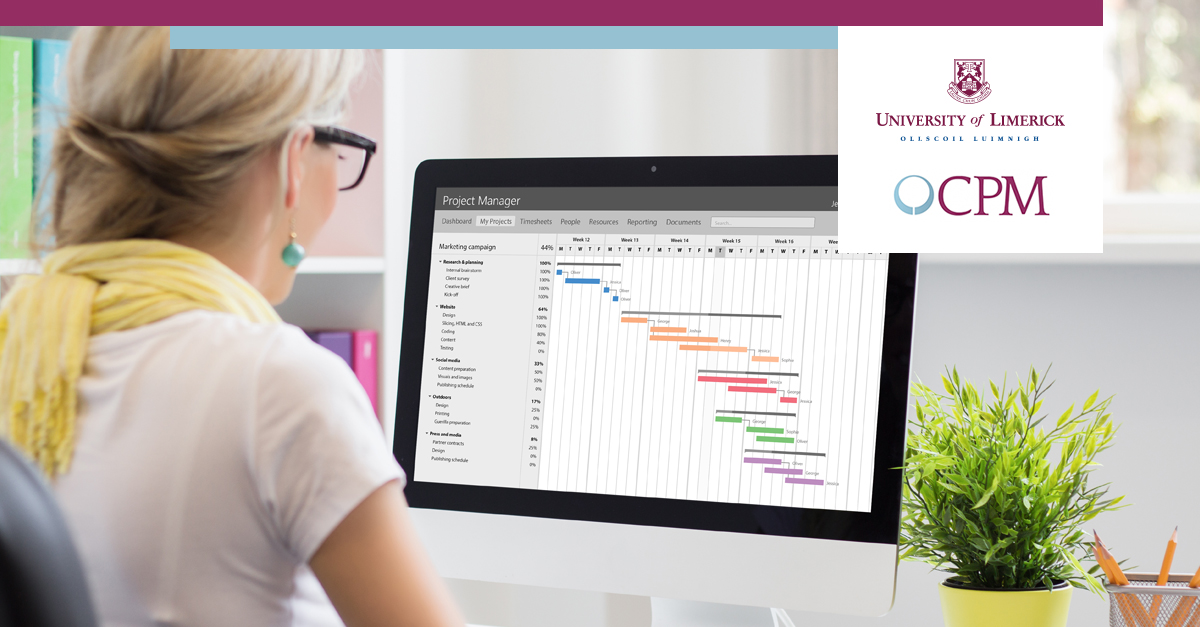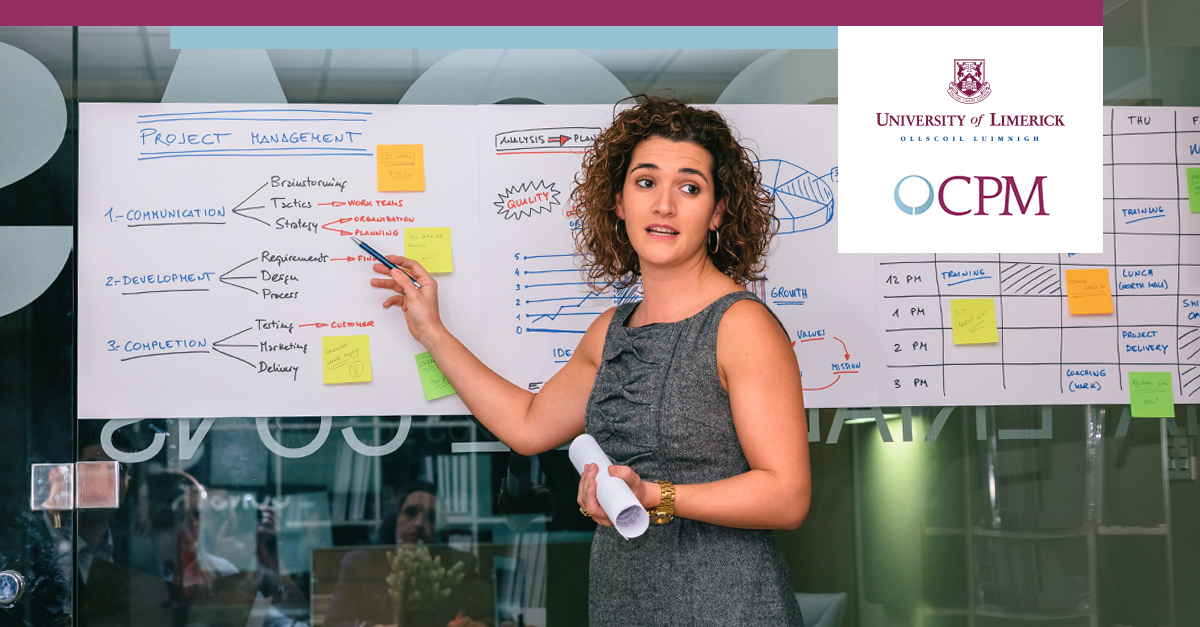A graduate of the MSc in Project and Programme Management from UL, Martina Corbett explains why she chose to pursue a masters qualification in the field and how it has impacted her career.
I’ve been employed in the semiconductor industry for almost my entire career to date and have been lucky enough to work for two of the most successful and innovative companies in Analog Devices and my current company, ON Semiconductor.
Innovations in semiconductors in turn drives innovation and development of so many new and advanced products and technologies and as a result, there is a consistent cycle of projects to drive further development in the industry.
With such a key need for project managers to lead and accelerate innovation, over the years I found myself naturally transitioning from roles in quality assurance and New Product Development Co-ordination supporting Product Engineering to taking the lead as project manager of New Product Developments.
Realising my need for a formal qualification
After 15 years of working in project management roles, I realised that the hands-on project management experience I had gained alone would not be enough to continue to drive progression in my career.
If I wanted to pursue a programme management role, achieve a more senior or strategic position or move into a PM role in a different industry, I realised I needed a formal qualification and a wider skillset.
I had already achieved PMP certification. I knew the theory, the models, the frameworks. Now I knew I needed to take a further step.
I needed to pursue a strategic, executive masters level qualification which would strengthen my wider business knowledge and skills, enable me to successfully manage projects and programmes on a global scale and help me truly open my career opportunities.
Researching my education options
Finding an executive level masters that was fully delivered online and on a part-time basis was very important to me. The changing schedules with my work and my need to also balance family and home life meant I just couldn’t commit to travelling to on-campus classes at set times every week. The flexibility to manage my own time and navigate work and personal commitments was imperative.
At the same time, I wanted to find an online masters which wasn’t just a self-learning course, and which ensured I could have access to lecturers and classmates. The course accreditation and the reputation of the course provider was also incredibly important. I needed to ensure that the qualification would be perceived as highly credible by my current and future employers and that it would be recognised and respected internationally.
Why I chose the UL Masters in Project and Programme Management
I researched many different executive education options and took the time to carefully consider the various online and part-time masters courses from universities worldwide. The Masters in Project and Programme Management from University of Limerick stood out for me for a lot of reasons. The 100% online, part-time delivery really fit my needs, but it was the collaborative nature of the how course is delivered which ultimately swayed my decision.
I liked how the course was delivered in a way that encouraged practical learning, participating in e-tivities, projects and discussions with group of learners, from various backgrounds, from all over the world. It wasn’t just theory based, reading slides and learning off frameworks.
The fact that the programme wasn’t solely focused on hard project and program management skills appealed to me too as I already had a lot of expertise in those areas.
The focus of the masters on the wider business areas and soft skills that impact projects and programmes such as people management, leadership, commercialisation and governance was influential on my decision as I felt these were the areas were my knowledge and skills gaps lay.
I was already aware of the style and standard of lecturers at University of Limerick and liked that the programme was delivered by a mix of both academic and industry experts. I felt that would give me a further mix of perspectives.
As it had been quite a few years since I had last been in formal education, it gave me peace of mind knowing I has such open access to lecturers and tutors on the programme too.
Finally, as a PMI member already, the PMI-GAC accreditation assured me that this was a highly credible programme as few masters programmes that I came across during my research had this accreditation.
For me, as the PMI is the global body for project and programme management, their accreditation of the course was a solid industry stamp of approval.
Why should you consider a Masters in Project and Programme Management?
I would recommend anyone with solid experience and involvement with projects to considering pursuing a Masters in Project and Programme Management. A masters qualification helps further your career, open up new opportunities and help you perform more effectively in the field.
The collaboration and discussions validated my ideas and perspectives and increased my confidence in my own abilities and I think this is important to help project professionals perform and excel in their roles and achieve better results.
Although I had 15 years’ experience in project and programme management before I started the masters, I was amazed at how many new insights and perspectives I gained from working with other professional classmates in different industries worldwide.
It’s a once in a lifetime experience to learn and work with professionals from so many different backgrounds, industries and countries.
The masters enabled me to build the deep expertise, knowledge and skills to manage teams across different cultures, time zones and industries. The number of project and programme management opportunities is consistently growing across all industries.
Developing global, cross-industry knowledge and skillset gives project and programme professionals like myself an advantage over peers when applying for promotions or new roles and opens so many more doors in terms of career opportunities.
About the author:
Martina Corbett is a Senior Project Manager with global Fortune 500 semiconductor manufacturer ON Semiconductor and is a graduate of the MSc in Project and Programme Management from University of Limerick.
Return to News Overview










